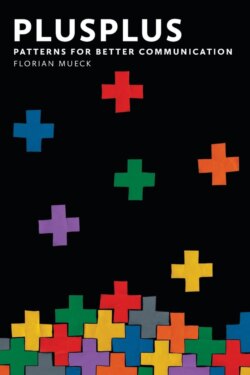Читать книгу PlusPlus - Florian Mueck - Страница 28
На сайте Литреса книга снята с продажи.
AND THEN MY DAD SAID
ОглавлениеI’m a great fan of dialogs in public speeches. When it comes to drama, however, most people are reluctant. I’m not an actor, they say. The reality is, they’re shy and self-conscious — so they need some encouragement!
The truth is: you don’t have to be an actor. As my friend, professional speaker Olivia Schofield says, An actor is an expert at being someone else, while, as a public speaker, you’re an expert at being yourself.
You can still add some significant, effective drama to your speeches — easily. You can spice up your content by using dialogs.
And then my dad said: Son, you know what makes me the happiest man on earth? When I’m out on the street and see a group of my alumni after 30 years, and the first thing I see on their faces when they see me is a smile. That makes me the happiest man on earth.
When we use dialogs, we change our facial expression, we vary our voice, we use dramatic acting techniques — and we’re not even aware we’re doing it.
When I speak about the power of a smile, I always recall this conversation with my dad. I remember him; I see him; I feel him. This is why that dialog comes across as authentic — because it was real.
Dialogs with moms and dads are always great, because almost all of us have them. Almost everyone can identify.
Many other conversations are easy to remember and use as dialogs — with other family members, friends, partners, teachers, bosses, colleagues, suppliers, clients, shopkeepers, bartenders — the list is endless.
If your audience speaks a certain type of jargon, and you want to connect with them on a more casual level, dialogs can also serve as a smart carrier of what might otherwise be inappropriate expressions:
Then my friend Thomas replied, “This is crap!"
You didn’t say it — your friend Thomas did!
Dialogs bring life into your speeches, and bring your speeches to life. Use them often!
Boost your content even more by adding dialogs.
